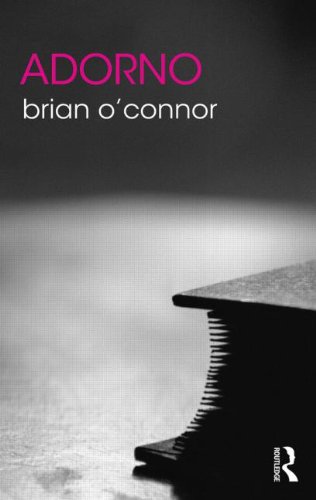

Most ebook files are in PDF format, so you can easily read them using various software such as Foxit Reader or directly on the Google Chrome browser.
Some ebook files are released by publishers in other formats such as .awz, .mobi, .epub, .fb2, etc. You may need to install specific software to read these formats on mobile/PC, such as Calibre.
Please read the tutorial at this link: https://ebookbell.com/faq
We offer FREE conversion to the popular formats you request; however, this may take some time. Therefore, right after payment, please email us, and we will try to provide the service as quickly as possible.
For some exceptional file formats or broken links (if any), please refrain from opening any disputes. Instead, email us first, and we will try to assist within a maximum of 6 hours.
EbookBell Team

4.0
76 reviewsTheodor W. Adorno (1903-69) was one of the foremost philosophers and social theorists of the post-war period. Crucial to the development of Critical Theory, his highly original and distinctive but often difficult writings not only advance questions of fundamental philosophical significance, but provide deep-reaching analyses of literature, art, music sociology and political theory.
In this comprehensive introduction, Brian O’Connor explains Adorno’s philosophy for those coming to his work for the first time, through original new lines of interpretation. Beginning with an overview of Adorno’s life and key philosophical views and influences, which contextualizes the intellectual environment in which he worked, O’Connor assesses the central elements of Adorno’s philosophy.
He carefully examines Adorno’s distinctive style of analysis and shows how much of his work is a critical response to the various forms of identity thinking that have underpinned the destructive forces of modernity. He goes on to discuss the main areas of Adorno’s philosophy: social theory, the philosophy of experience, metaphysics, morality and aesthetics; setting out detailed accounts of Adorno’s notions of the dialectic of Enlightenment, reification, totality, mediation, identity, nonidentity, experience, negative dialectics, immanence, freedom, autonomy, imitation and autonomy in art. The final chapter considers Adorno’s philosophical legacy and importance today.
Including a chronology, glossary, chapter summaries, and suggestions for further reading, Adorno is an ideal introduction to this demanding but important thinker, and essential reading for students of philosophy, literature, sociology and cultural studies.